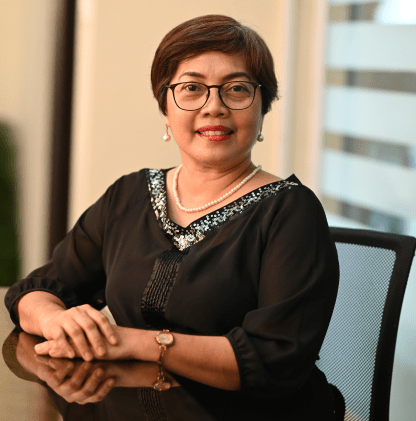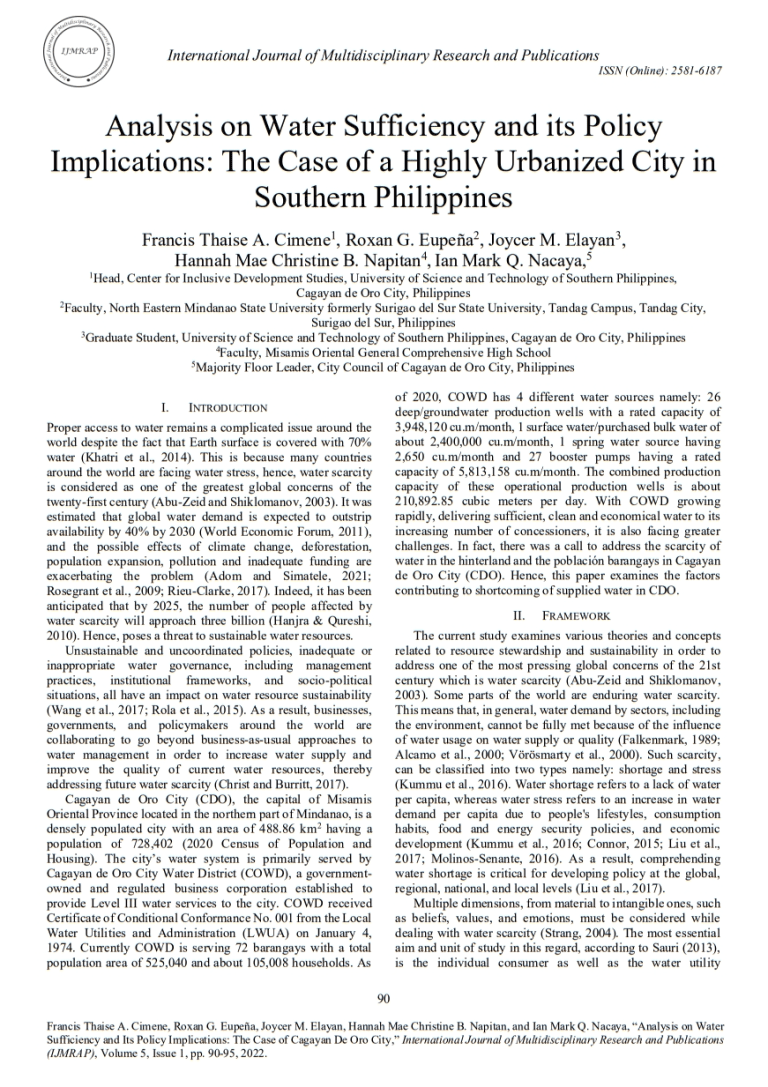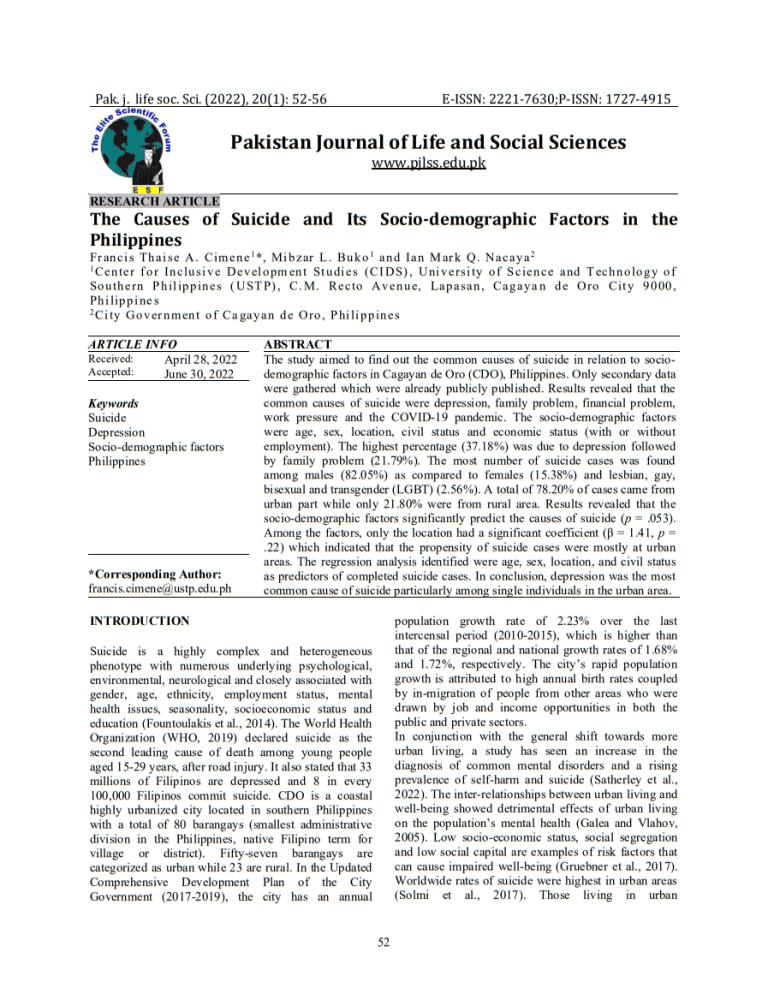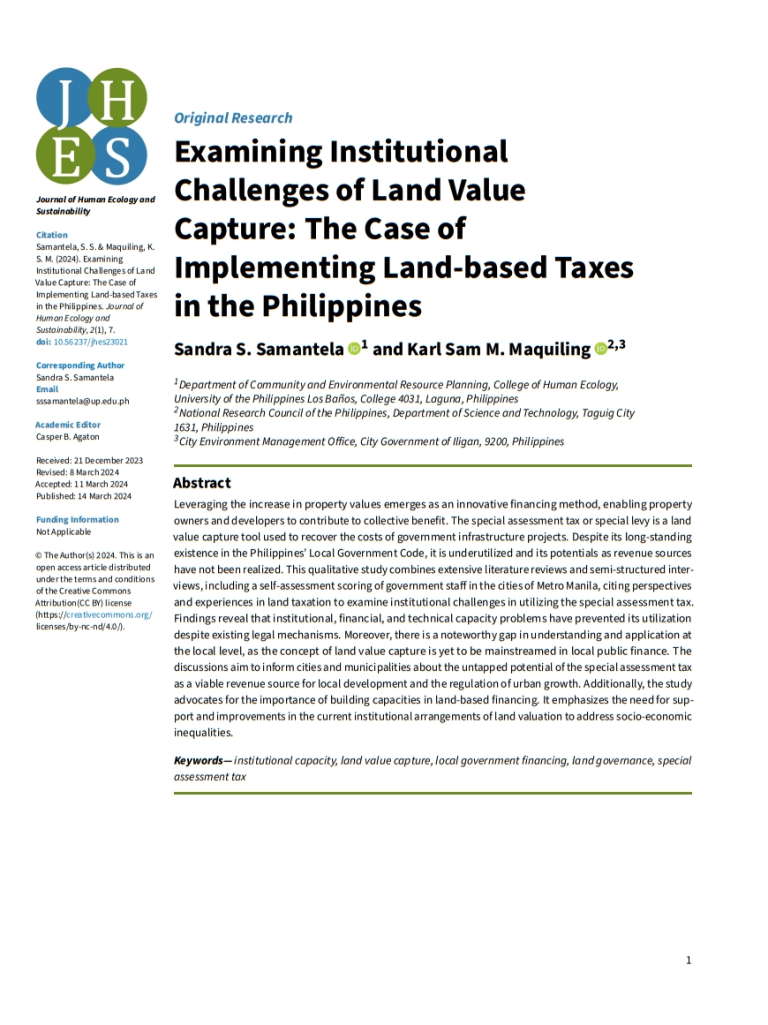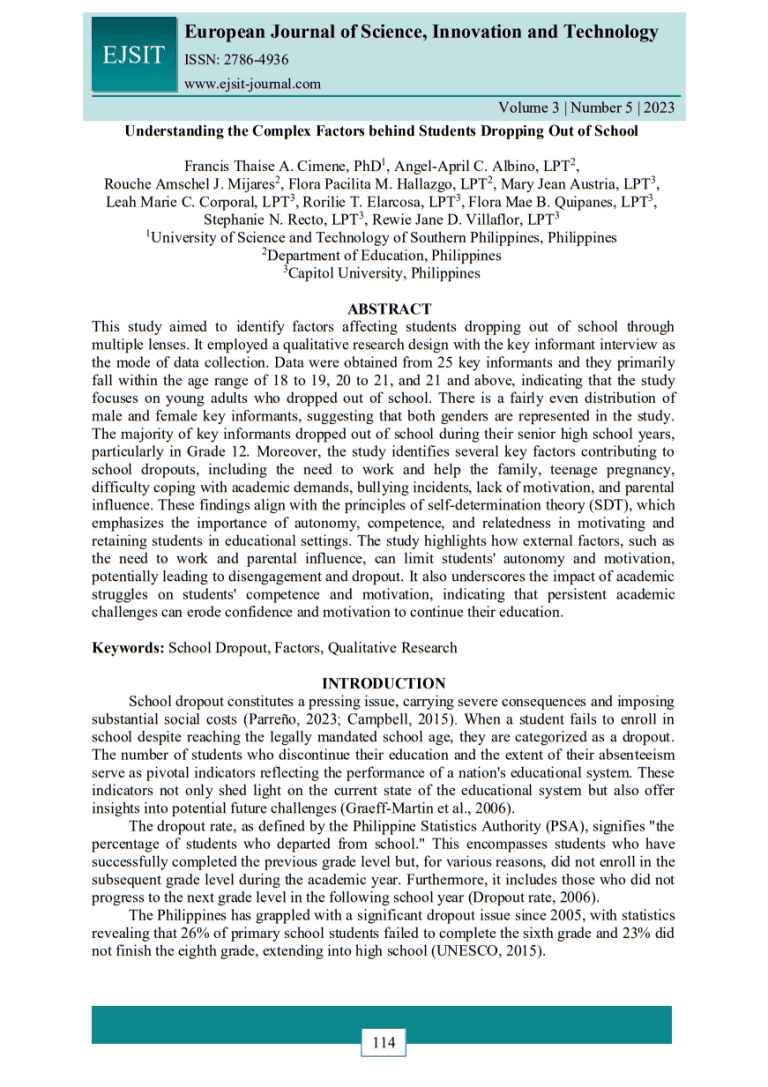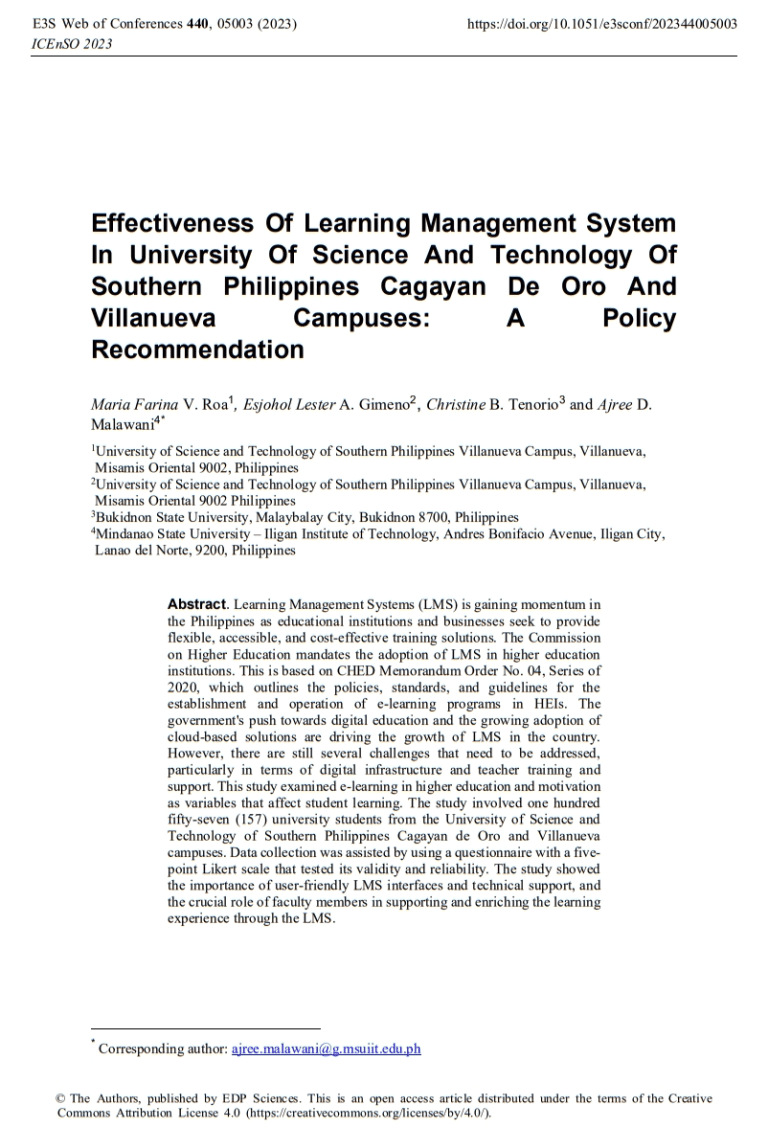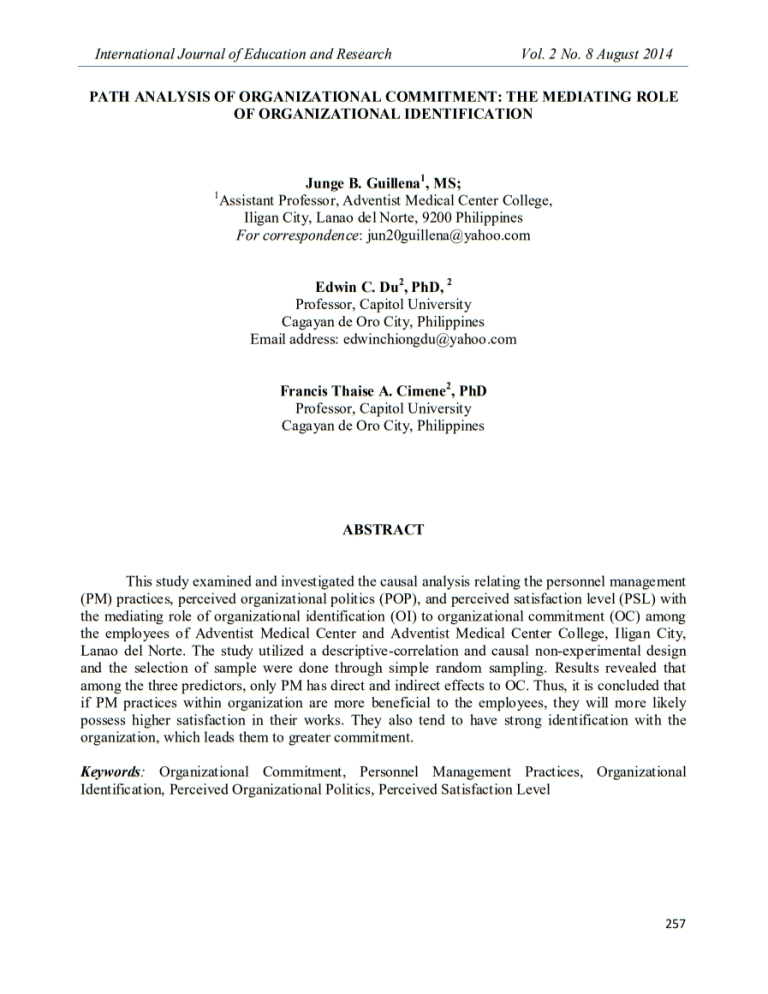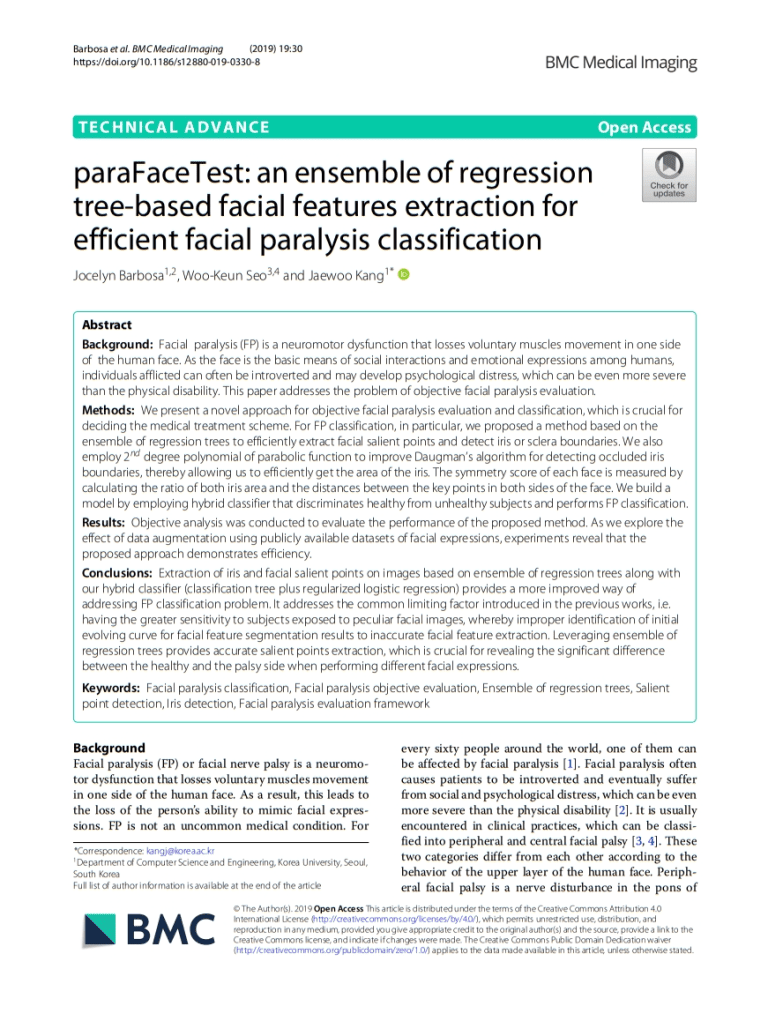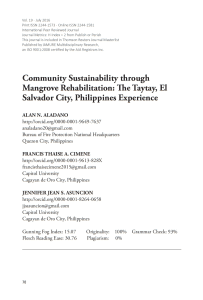

Published: Jul 02, 2016 | Updated: May 02, 2024
Community Sustainability through Mangrove Rehabilitation: The Taytay, El Salvador City, Philippines Experience
Authors: Dr. Francis Thaise Alan N. Aladano and Jennifer Jean S. Asuncion community, descriptive design, mangrove rehabilitation, philippines, sustainability, sustainable, Sustainable DevelopmentAbstract
This undertaking is a follow-up study of the research conducted ten years ago on The Mangrove Rehabilitation Project in Taytay, El Salvador City, Misamis Oriental: A View From Within the Community. The purpose is to ascertain the impact of the Mangrove Rehabilitation Project on the community after ten years. Data were gathered using the descriptive method of research and this was done by quantitatively (using numbers) and qualitatively characterizing the variables considered in this study. Although the orientation of this study is both quantitative and qualitative, the method of research lies heavily on the qualitative perspective. This study found out that the indiscriminate exploitation of the mangroves for commercial, aquacultural, and residential purposes had been reduced over the years in the community. The importance of mangrove forests in providing invaluable goods and services both in economics and environmental terms are well understood by all household respondents. The community also recognizes the biological support (fisheries, birds and ecosystems) and physical protection (i.e., mangroves play a significant role as windbreak and shoreline stabilizer and acting as a buffer in the context of the extreme weather phenomena) derived from the forest. Thus, there is an economic value experienced by the community from the Mangrove Rehabilitation Project. Also, this study concludes that when coastal fisheries are well managed by local communities, the foregone benefits of mangrove in terms of support for coastal fisheries can be considered. It implies that community-based restoration of mangrove forest proves to be effective. This in itself is a manifestation of the success of the Mangrove Rehabilitation Project. Hence, the sustainability of the project is dependent on how convinced the community is about the project’s aims and objectives as well as on how they embrace and claim ownership of the project.



